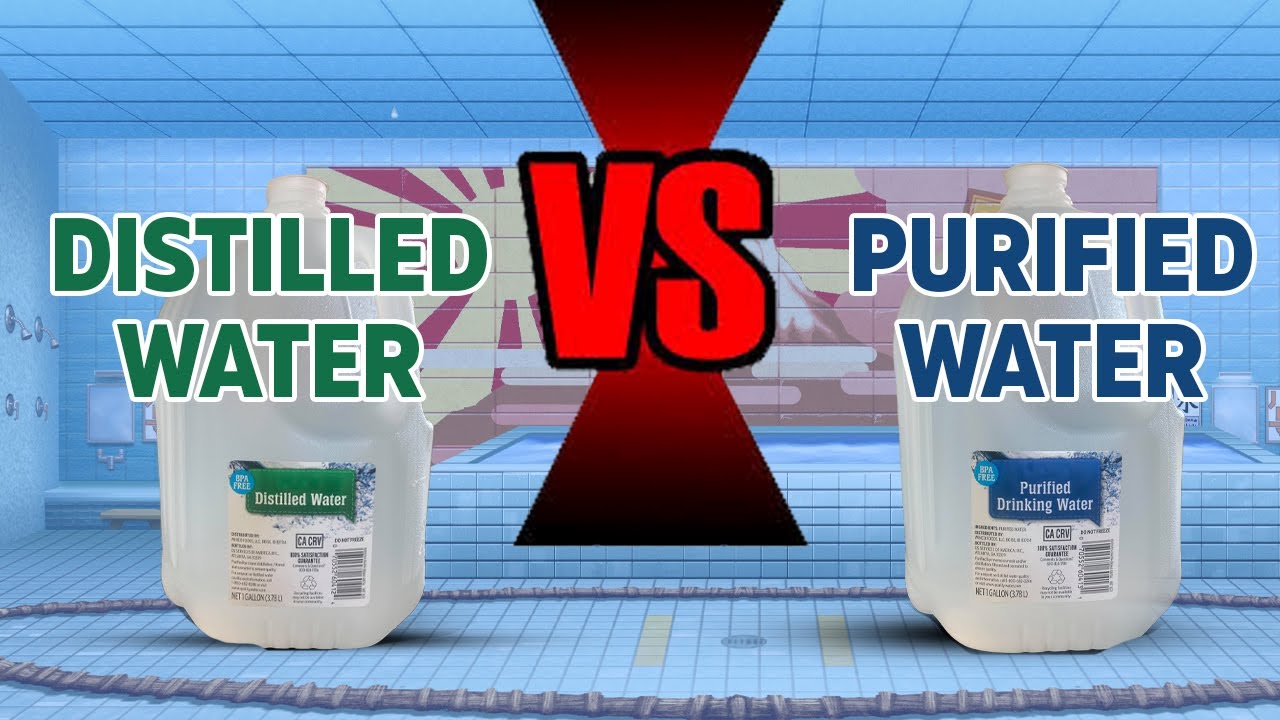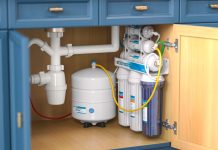Distilled vs Purified Water: Making the Right Choice
In the quest for clean and safe drinking water, understanding the differences between distilled and purified water is paramount. In this comprehensive guide, we’ll delve into the nuances of these two types of water and help you make the informed choice that suits your hydration and household needs.
Understanding Distilled Water:
Distilled water, a product of the distillation process, is known for its exceptional purity:
Distillation Process:
Distilled water is created through the process of distillation, where water is heated, vaporized, and then condensed to remove impurities. It’s a meticulous process that results in exceptionally pure water.
Purity and Uses:
Distilled water is devoid of minerals and contaminants, making it ideal for applications like laboratory experiments, medical equipment, and even automotive use.

Exploring Purified Water:
Purified water, on the other hand, undergoes purification methods to achieve its clean state:
Water Purification Methods:
Purified water is achieved through various purification methods, including reverse osmosis, deionization, and filtration. These methods effectively remove impurities, ensuring safe consumption.
Versatility and Applications:
Purified water, thanks to its removal of contaminants, is suitable for a wide range of applications, from serving as drinking water to being used in pharmaceutical manufacturing.
Key Differences Between Distilled and Purified Water:
When it comes to choosing between distilled and purified water, understanding their differences is crucial:
Purity Levels:
Distilled water is often considered the purest form of water as it’s free from minerals and most contaminants. Purified water, while also highly pure, may retain some minerals depending on the purification method used.
Taste:
Distilled water is known for its flat taste due to the absence of minerals. Purified water, which retains some minerals, may have a milder and more pleasant taste.
Safety:
Both distilled and purified water are safe for drinking. However, some individuals prefer distilled water for certain medical or dietary purposes.
Health Considerations:
It’s important to note that the absence of minerals in distilled water may not be suitable for long-term consumption, as it may not provide essential minerals that the body needs.
Common Uses of Distilled Water:
Distilled water finds its place in various applications:
Laboratory Experiments:
Distilled water is a staple in laboratories, where the absence of impurities is crucial for precise experiments.
Medical Equipment:
Medical professionals often use distilled water in medical equipment to ensure sterility and accuracy.
Automotive Use:
In automotive maintenance, distilled water is used in batteries and cooling systems to prevent mineral buildup and corrosion.
Household Appliances:
Some households use distilled water in appliances like steam irons to prevent mineral deposits.
Practical Applications of Purified Water:
Purified water is equally versatile:
Drinking Water:
Many people use purified water as their primary drinking water source due to its purity and taste.
Manufacturing:
Industries, especially pharmaceutical and food, rely on purified water for manufacturing processes to maintain product quality.
Pharmaceuticals:
In pharmaceutical manufacturing, purified water is used for drug formulation, ensuring safety and effectiveness.
How to Choose the Right Water for Your Needs:
Choosing between distilled and purified water depends on your specific requirements:
Health Considerations:
If you have specific health concerns or dietary needs, consult with a healthcare professional to determine the best water choice.
Taste Preference:
Consider your taste preference; some may enjoy the milder taste of purified water, while others prefer distilled water for certain applications.
Intended Use:
Base your choice on the intended use; for instance, consider distilled water for laboratory or medical equipment and purified water for drinking.
Water Quality Tips:
Improving water quality at home is important for many individuals. Here are some tips:
Water Filtration Systems:
Consider installing water filtration systems to remove impurities and enhance the taste of your tap water.
Regular Testing:
Periodically test your water quality to ensure it meets safety standards, especially if you rely on well water.
Water Softeners:
If you have hard water, water softeners can help reduce mineral buildup in pipes and appliances.
Consult Experts:
When in doubt about your water quality or purification needs, consult experts in water treatment.
Frequently Asked Questions (FAQs) About Distilled vs. Purified Water
1. What is the main difference between distilled and purified water?
**Distilled water** is created through the distillation process, while **purified water** undergoes various purification methods. Distilled water is often considered the purest, with no minerals or contaminants, while purified water retains some minerals.
2. Is distilled water safe to drink?
Yes, distilled water is safe to drink. However, it may lack essential minerals, so it’s not recommended for long-term consumption.
3. Can I use distilled water in my household appliances?
Absolutely. Distilled water is ideal for appliances like steam irons, as it prevents mineral deposits that can affect their performance.
4. Is purified water the same as distilled water in terms of purity?
Purified water is highly pure but may retain some minerals, while distilled water is usually considered the purest form of water due to the distillation process.
5. Which water is better for laboratory experiments, distilled or purified?
Distilled water is commonly preferred for laboratory experiments due to its exceptional purity, making it suitable for precise scientific work.
6. Does purified water taste better than distilled water?
Purified water often has a milder and more pleasant taste due to the presence of some minerals, while distilled water has a flat taste.
7. Are there health risks associated with consuming impure water?
Impure water may contain contaminants harmful to health. Choosing either distilled or purified water can help mitigate these risks.
8. Can I use purified water for drinking purposes?
Yes, many people use purified water for drinking due to its high purity and improved taste.
9. What are the most common purification methods for water?
Common water purification methods include reverse osmosis, deionization, and filtration, each with its advantages.
10. How can I improve the taste of tap water at home?
You can improve tap water taste by using water filtration systems, regularly testing water quality, considering water softeners for hard water, and consulting experts in water treatment.
Conclusion:
In conclusion, the choice between distilled and purified water ultimately depends on your specific needs and preferences. Understanding the key differences and practical applications of each type empowers you to make the right choice for your hydration and household requirements. Whether you prioritize exceptional purity, taste, or versatility, both distilled and purified water have their unique merits. Make your decision based on your health considerations, intended use, and personal taste preferences.




